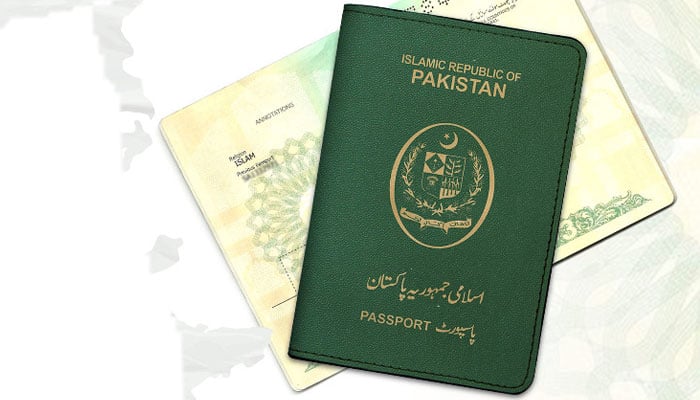Karachi: According to The News on Thursday, the Pakistani passport is still ranked fourth in the world for the new year and hasn’t improved in at least the previous five years.
The passport has been placed as the fourth worst, according to statistics from Henley & Partners, a UK-based citizenship and residence consultancy service that rates 199 countries on its index. This is after the passport began to decline in July of last year.
According to the company’s Global Mobility Report 2024, the nation’s passport has a score of 34, placing it 101st (out of 104) on the Henley Passport Index. This indicates that only 34 out of the 227 locations in the index are accessible without a visa for Pakistani nationals with a regular passport.
The ranking, which is based on the number of countries and territories (destinations) that passport holders can access without a prior visa, has involved the analysis of almost 199 passports. The International Air Transport Association (IATA) provides the data that the index is based on.
This year, six nations—France, Germany, Italy, Japan, and Singapore—occupy the top spot for the world’s strongest passport. These nations scored 194 on the index to rank first. Singapore and Japan, respectively, occupied the top two positions in 2023. First place represents a huge two-spot jump for France, Germany, and Italy; last year, the three nations shared third place with four other nations.
With a combined score of 193, Finland, South Korea, and Sweden are all tied for second place. With a combined score of 192, Austria, Denmark, Ireland, and the Netherlands share third place.
Afghanistan’s passport remains the worst in the world, allowing its people to enter only 28 countries without a visa. With access to 29 and 31 destinations, respectively, Syria and Iraq rank second and third among the worst countries.
Pakistan has outperformed other South Asian nations, but their combined score is still low. Bangladesh is ranked 97th and can enter 42 countries without a visa. Sri Lanka is just one position ahead, scoring 45 out of 96. Nepal, with a score of 40, is ranked 98th.
In the South Asian area, only India has done better, coming in at 80th place with a score of 62.
Barbados, Burundi, Cambodia, Cape Verde Islands, Comoro Islands, Cook Islands, Djibouti, Dominica, Guinea-Bissau, Haiti, Kenya, Madagascar, Maldives, Micronesia, Montserrat, Mozambique, Nepal, Niue, Palau Islands, Qatar, Rwanda, Samoa, Senegal, Seychelles, Sierra Leone, Somalia, Sri Lanka, Timor-Leste, Togo, Trinidad and Tobago, Tuvalu, and Vanuatu are the only places where a Pakistani passport is accepted without a visa.
Dr. Christian H. Kaelin, the chairperson of Henley and Partners, stated in a statement released by the company that “the global mobility gap between those at the top and bottom of the index is now wider than ever, although the general trend over the history of the 19-year-old ranking has been towards greater travel freedom.”
According to him, “the average number of places visitors can visit without a visa has almost doubled from 58 in 2006 to 111 in 2024.” This indicates that, in comparison to Afghanistan, which is at the bottom of the ranking and may only visit 28 countries without a visa, “the top-ranked countries are now able to travel to a staggering 166 more destinations visa-free.”
Experts also highlight the increasing usage of technology for duties related to travel. According to Frederic Leger, Senior Vice President of Commercial Products and Services at IATA, “the optimization and enhancement of airport processes will need to continue, with passenger traffic set to double by 2040.” To a much greater extent, travel document checking and verification must be automated. In order to accomplish this, passengers have made it quite evident that they are eager to provide their data before to flying.







